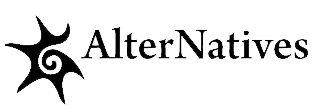We want to stand out. We want for you to know the efforts we’ve made to leave an Earthly inheritance for our youth. We want you to feel the living spirit within each fiber of your clothing. We want to empower you to make a difference in global trade inequities. Fair Trade organizations want for you to ask the questions which makes our marketplace transparency stand out!
You, the consumer, are the single “checks and balance” system to the Fairtrade movement. Without an investigative approach to shopping, Fair Trade is a measly stamp. With the right questions, you’ll quickly reveal the true colors of a fast-fashion retailer; or verify an organization’s mission. So, equip yourself with these rudimentary questions and be the change you want to see in the world.
This is possibly the most important question to ask as a consumer. To look for items guaranteeing longevity is to begin reducing the stress on the supply chain. Clothing tailored for life versus a season inevitably reduces the nonviable demand on suppliers. Why do factories outsource? To meet demand and maintain business.
If you were writing an essay, this would be your research question: to what extent is the organization knowledgeable of their supply chain and how do they show it? A pig farm grossly overproducing will be opaque; however, a coffee plantation using all organic fertilizer will show you the works, this is transparency.
In today’s connected world simply stating “made in” is not enough, we want to know who. Fair Trade intentionally assists marginalized communities. At the core of the Fairtrade movement is the individual-- the artisan.
A large part of the Fairtrade movement is dealing with the preservation of our Earth. Communities are frequently marginalized as a result of the degradation of their land and the pollution left behind by the international “machine.” Thus, to reverse the degradation of our Earth is to reverse the marginalization of the people dependent of this Earth.
This goes to show whether the organization is vested in global issues as their own.
You want to be able to see that both the producer and seller benefit from trade.
This is to consider how the organization is breaking the perpetual cycle of poverty. You’ll want to have an understanding of why poverty is a cycle and why it is so hard to break free.
(Here’s an excellent resource: http://www.highlandsupportproject.org/who-we-are/mission/).

There are many ways producers can be empowered. Examples range from improving artisan techniques to behavioral health programming. Consider what self-esteem and behavioral health programming does to initiate development. “It is understood that if a woman does not believe she is capable of success she will not be motivated to seek change” (Highland Support Project). While lacking confidence, could you break free?
Don’t worry-- this is not a scavenger hunt! In a conscientious marketplace the answers will be glaring. AlterNatives, Fair Trade, we stand out.
